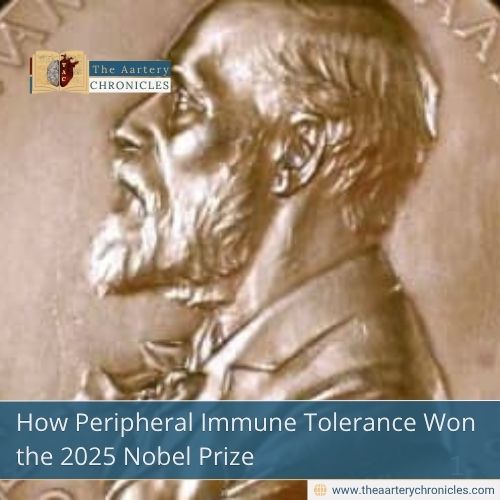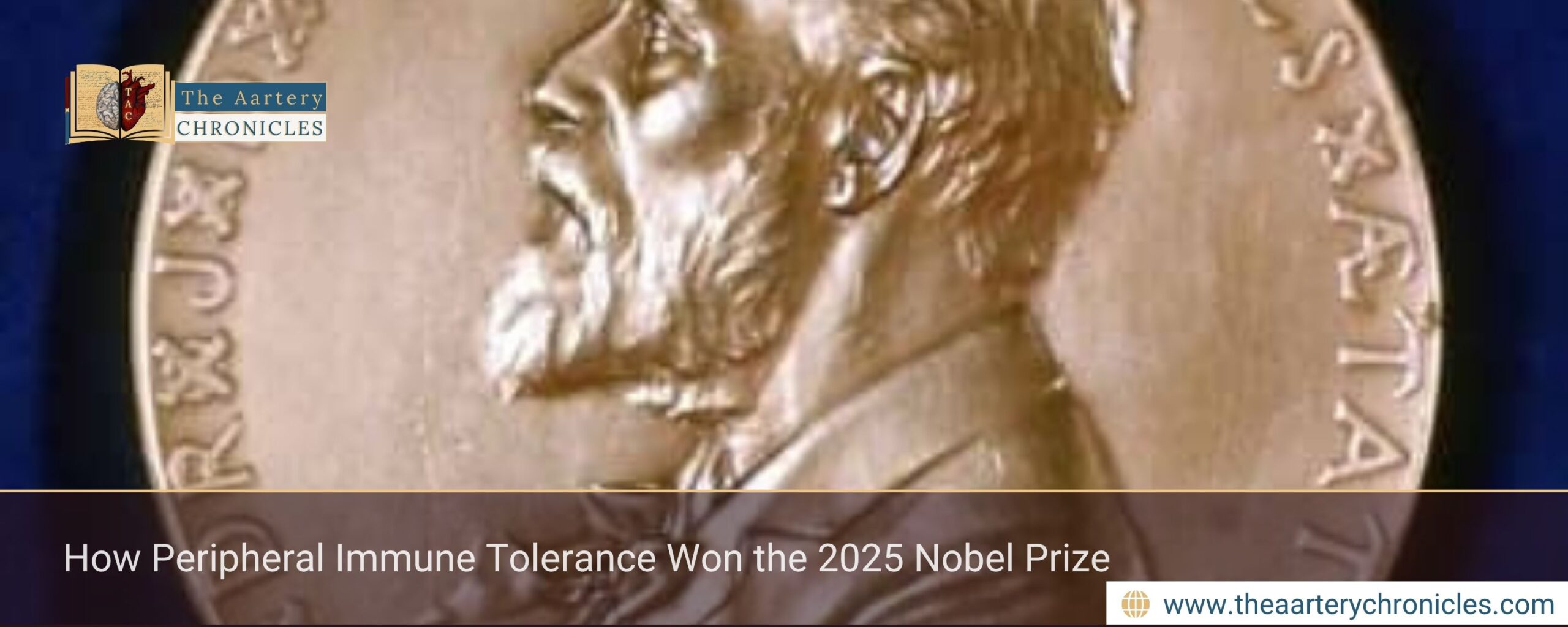

How Peripheral Immune Tolerance Won the 2025 Nobel Prize
The 2025 Nobel Prize in Physiology or Medicine has been awarded to Mary E. Brunkow, Fred Ramsdell, and Shimon Sakaguchi for their pioneering discoveries on peripheral immune tolerance, a vital mechanism that prevents our immune system from mistakenly attacking healthy cells and organs.
Their research has transformed modern immunology by uncovering how the immune system maintains balance, paving the way for new treatments for autoimmune diseases, cancer, and transplant complications.
Understanding Peripheral Immune Tolerance
In simple terms, peripheral immune tolerance acts as the body’s internal “security system.” While the immune system is designed to fight infections and eliminate harmful invaders, it must also recognize the body’s own tissues as “self.”
When this tolerance mechanism breaks down, the immune system can mistakenly target the body’s organs, leading to autoimmune diseases such as lupus, type 1 diabetes, and rheumatoid arthritis. The discoveries made by this year’s Nobel laureates explain how this regulation happens and what goes wrong when it fails.
How Their Research Changed Immunology
Dr. Shimon Sakaguchi first identified a special group of immune cells called regulatory T cells (Tregs), the “peacekeepers” that prevent immune overreaction.
Later, Mary E. Brunkow and Fred Ramsdell discovered the genetic mutation behind a group of mice known as “scurfy” mice, which developed severe autoimmune disorders. This led to the identification of the FOXP3 gene, a key regulator responsible for the proper function of Tregs.
Together, their work established how regulatory T cells and peripheral immune tolerance protect the body from self-inflicted immune damage.
Impact on Modern Medicine
These findings have not only deepened our understanding of immune regulation but have also opened doors to new medical possibilities.
- Autoimmune diseases: Therapies are being developed to boost or restore tolerance in patients whose immune systems attack their own tissues.
- Cancer treatment: Researchers are exploring ways to safely lower immune tolerance so the body can better target tumor cells.
- Transplant medicine: Strengthening tolerance may help prevent the immune system from rejecting transplanted organs or stem cells.
According to the Nobel Assembly, these discoveries “laid the foundation for a new field of research” and are already influencing clinical trials worldwide.
Conclusion
The 2025 Nobel Prize in Physiology or Medicine celebrates the discovery of how peripheral immune tolerance protects us from our own immune system. The collective research of Brunkow, Ramsdell, and Sakaguchi not only reshaped the understanding of immune balance but also ignited hope for new treatments for autoimmune and cancer patients alike.
Their work reminds us that mastering the body’s self-control mechanisms is as important as learning how to fight disease.
Source: Inputs from various media Sources
I’m a pharmacist with a strong background in health sciences. I hold a BSc from Delhi University and a pharmacy degree from PDM University. I write articles and daily health news while interviewing doctors to bring you the latest insights. In my free time, you’ll find me at the gym or lost in a sci-fi novel.
- Priya Bairagi
- Health News and Updates,People Forum
- 7 October 2025
- 09:00








